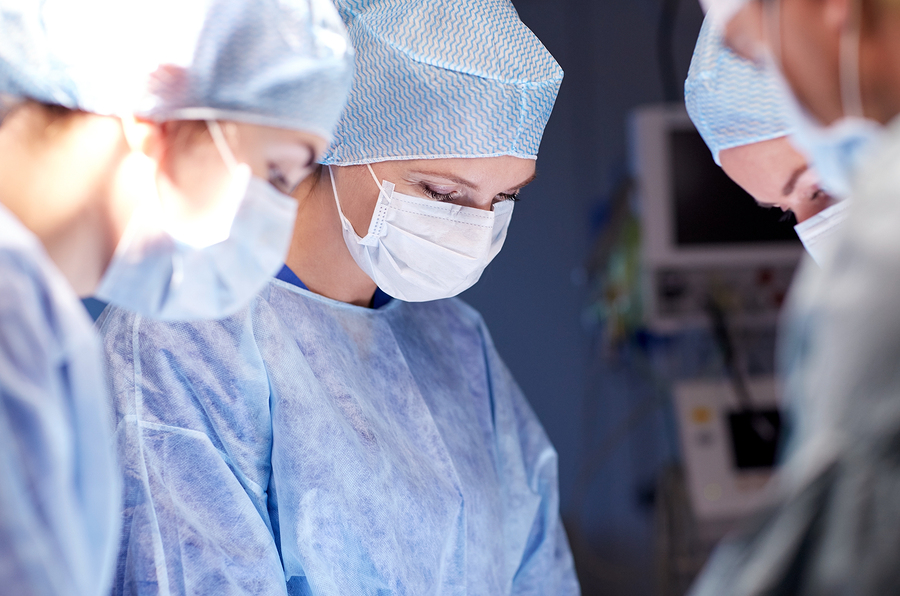I’m having a hysterectomy. What do I need to know about this operation?
A hysterectomy is the surgical removal of your uterus. It usually also includes the removal of your cervix and may include removal of fallopian tubes and ovaries. In Australia about 1 in every 30 women will need or seek a hysterectomy.
Women choose a hysterectomy for many reasons, including heavy bleeding, pelvic pain and uterine prolapse. Other hysterectomies are done for life-saving reasons such as for cancer treatment or life-threatening uterine bleeding.
There are three different ways gynaecologists perform hysterectomies
1. Total abdominal hysterectomy
The first is an abdominal hysterectomy (AH) that involves an open abdominal incision, usually horizontal just along the bikini like. This is often performed for very large uteruses that have fibroids, or where women have severe abdominal adhesions from previous surgery, severe endometriosis, or infections. Recovery in hospital usually takes 4-7 days and usually women require 6-8 weeks before resuming normal activity. Although less commonly needed today because of the availability of 'keyhole' surgery, sometimes this 'open' surgery is still required. At TasOGS both Dr Connan and Dr Hingston can perform this type of hysterectomy.
2. Total laparoscopic hysterectomy
The second surgical method is the total laparoscopic hysterectomy (TLH) also sometimes called a ‘key-hole’ hysterectomy. This technique is used for hysterectomies where the tubes and/or ovaries are also being removed, where excision of endometriosis is also occurring, and often for women who have not had vaginal births and so a vaginal hysterectomy is not possible. Recovery is hospital is usually 1-3 days and women can often resume normal activity 2-4 weeks after surgery. This type of hysterectomy is best performed by gynaecologists who have additional training in advanced laparoscopy ('key-hole' surgery).
After 5 years of general training Dr Connan spent 18 months at the Royal Women’s Hospital (Melbourne) specialising in endometriosis 'key hole' surgery and laparoscopic hysterectomies. She then worked as a specialist in the same gynaecology team from 2010 to 2013. For the past 7 years laparoscopic hysterectomies have been Dr Connan’s primary method of hysterectomy in those for whom the technique is suitable.
3. Vaginal hysterectomy
The third hysterectomy technique is the vaginal hysterectomy (VH) that requires only an incision in the vagina. This is usually the technique of choice for women with a normal-sized uterus having had previous vaginal births or pelvic floor prolapse. Recovery is hospital is usually 2-3 days and women usually require 6 weeks before resuming normal activity. At TasOGS Dr Hingston performs this type of hysterectomy.
Which surgical technique should I have?
This is best discussed with your gynaecologist. There are differences with surgical risks and differences with recovery among the different methods of hysterectomy, making the choice very dependent on features and characteristics of both patient and uterus. Not all gynaecologists can do all types of hysterectomy.
Are there advantages to a ‘key-hole’ laparoscopic hysterectomy (TLH)?
When compared with a traditional 'open' hysterectomy, a laparoscopic hysterectomy often reduces recovery time, hospital stay, and postoperative pain, but may be associated with a slightly higher risk of complications (in particular urinary tract injuries), particularly when performed by less experienced gynaecologists.
What questions should I ask my gynaecologist?
It is important to understand the reason why you may need a hysterectomy, and if one technique is recommended over another, the reasons why one type of surgery may be more suitable for you.
Every patient and every uterus is different, and what may be suitable for one person may not be the best choice for another.
Other questions that may be helpful to ask include:
- How many hysterectomies have you done? And of this type?
- What is your complication rate?
- How do you manage such complications?
- How long will I stay in hospital?
- When can I drive after surgery?
- When can I have sex after surgery?
- When can I return to all normal activities?
- Do I still need PAP smears?
- Does this influence my menopause?
Although recovery after a laparoscopic or vaginal hysterectomy can be rapid, hysterectomies are still a major operation. Make sure you have all your questions and concerns answered before your surgery.
At TasOGS we strive to make sure you are well informed before any surgical procedure you may require. Please speak to your gynaecologist if you have any further questions or concerns.

